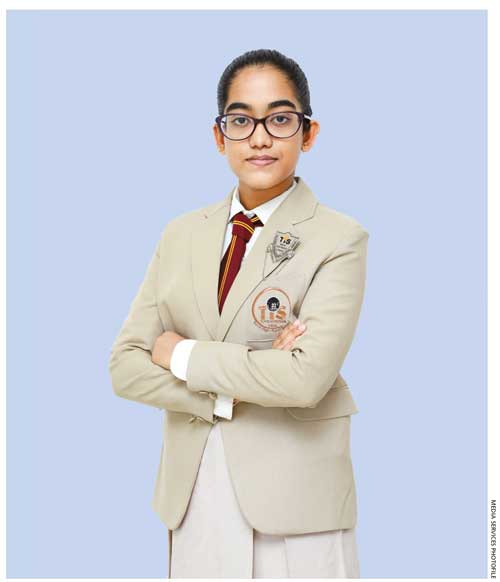
Compiled by Nicola Jayasundera
INCLUSIVITY IS A PANACEA
Supulya Minsadi Hettiwatta favours inclusivity in our quest for harmony

Q: What’s the good, the bad and the ugly in Sri Lanka today?
A: The good lies in Sri Lanka’s rich cultural heritage and natural beauty. Its environment and history are sources of pride for the island, and the resilience and warmth of the Sri Lankan people are truly commendable.
Unfortunately, the bad encompasses various challenges. Socioeconomic disparities persist, and issues such as poverty and unemployment need attention. Sri Lanka has also faced political instability and governance challenges in recent years, which have hindered its progress. Sporadic ethnic and religious tensions still require efforts towards lasting reconciliation.
Sri Lanka’s ugly truth includes communal violence, human rights abuses and political corruption. These issues have stained the nation’s reputation, and posed obstacles to social harmony and development. Addressing them urgently is crucial for a better future.
Q: And what are the other challenges facing our country at this time?
A: Sri Lanka’s pressing challenges include economic disruption due to spiralling inflation, high debt and the residual impacts of the COVID-19 pandemic, which affect youth employment.
Ensuring political stability, good governance and transparency is crucial.
While strides have been taken in healing divisions, achieving social cohesion needs more effort. Environmental issues such as deforestation and climate change demand immediate attention.
Q: Do you believe that all Sri Lankans will be united one day – and how and why, if so?
A: I believe Sri Lanka can unite by drawing on its rich history and diverse culture.
The younger generation prioritises inclusivity and education fosters intercultural harmony. Reconciliation efforts due to a genuine desire for peace and progress demand a commitment from the government and civil society.
Q: Where do you see yourself in 10 years’ time?
A: The future is unpredictable. Since I have plenty of dreams however, I see myself pursuing higher studies while seeking new opportunities to gain more experience, which will enable me to understand life better.
I also aim to acquire the skills needed to become a great social influencer and help people who are facing psychological issues. My aspiration is to be a role model and mentor to young individuals, and enable them to unlock their full potential.
Q: And where do you see Sri Lanka in a decade or so from today?
A: I see Sri Lanka as a prosperous nation marked by economic stability, political maturity and social unity. It should have made significant progress over the decade in tackling economic disparities and political corruption.
Sri Lanka should gain recognition for its dedication to environmental sustainability and efforts to combat climate change. My vision includes a united population that celebrates its diverse cultural heritage while transcending ethnic and religious differences. And education will play a pivotal role in fostering tolerance and understanding among the younger generation.
Q: Who is responsible for climate change and global warming, in your view – and what must be done about these issues?
A: Climate change and global warming require a collaborative effort with shared responsibility among nations. Developed countries bear a historical responsibility due to industrialisation and higher emissions but developing nations also contribute to this problem today.
To address this, global cooperation is vital to ensure cleaner energy, sustainable transport, reforestation and energy efficiency.
Individuals should make lifestyle changes; businesses must adopt sustainable practices; and governments need to enact policies, fund renewable energy research and engage in international climate agreements.
Q: How do you view the growing importance of social media today?
A: The undeniable importance of social media lies in its global communication and knowledge sharing capabilities, which empower marginalised voices and social movements.
However, it poses challenges such as spreading misinformation and cyberbullying, and exacerbates mental health issues.
As a deputy head prefect, I work towards educating students in responsible social media use – focussing on digital literacy, critical thinking and online etiquette – while offering support for their social and emotional wellbeing.
Q: And last but not least, where do you see the world in 10 years’ time?
A: In a decade, I envision a more interconnected, sustainable and cooperative global community with significant progress in combatting climate change through renewable energy adoption.
I also hope that there will be an increased focus on reducing poverty, and promoting mental health, education, inclusivity and equity, while addressing ethical and privacy concerns in advancing technology.






